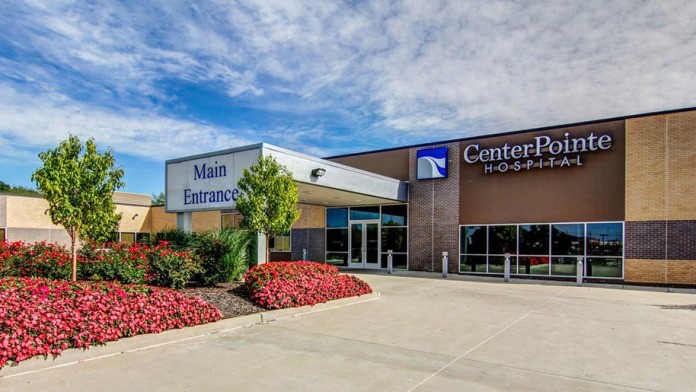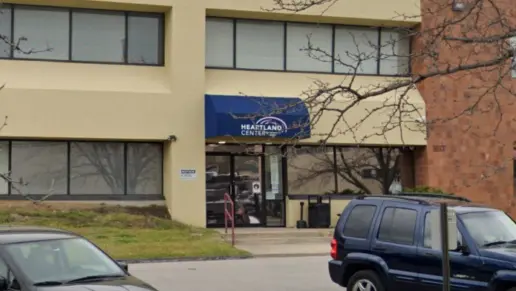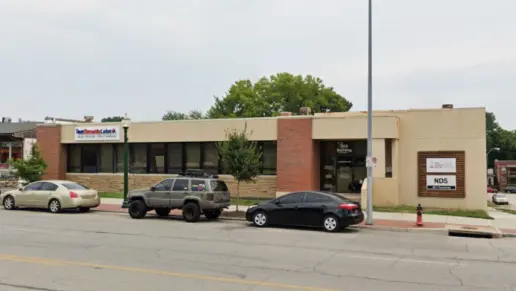About CenterPointe Hospital Addiction Treatment
CenterPointe Hospital, located in Saint Charles, Missouri, provides behavioral health services for adolescents and adults. They offer age specific residential, inpatient, and intensive outpatient programs (IOP), including a special program for seniors. They accept private insurance, Medicaid, and Medicare. If you don’t have insurance, financing plans are available.
They offer two levels of on site treatment, including acute inpatient and residential care. Of the two, acute inpatient treatment is more intensive. It’s designed for clients who are experiencing an emotional crisis and need to be stabilized immediately to make sure they don’t harm themselves or others. Both programs include services to help clients overcome their addictions or dual diagnosis concerns, such as medication management, medication assisted treatment (MAT), and on site medical detox. Residential treatment also incorporates evidence based and holistic therapies, like individual, family, and group counseling sessions, 12 step programming, relapse prevention training, recovery focused education, and activity therapy. You can also practice yoga, meditation, and journaling for inner reflection.
If you don’t need inpatient treatment but could still benefit from more structure than a general outpatient program (OP) provides, then you may be interested in their IOP counseling services. These usually require a commitment of three hours a day, three times a week, for around four to six weeks. You’ll visit the facility in person to attend the sessions, which may be held one on one, with a group of your peers, or with your family members.
One thing that caught my eye about this facility is their dedication to the aftercare part of recovery. They recognize that treatment doesn’t end when a client exits their program, and that they may need extra support to maintain their sobriety and healthy habits out in the real world. They offer bi-weekly group support meetings that are open to all alumni. Their topics can vary, but they tend to focus on how to sustain recovery, prevent a relapse, build healthy relationships, and discover a sense of purpose.
Perspectives on this facility are mixed, with some clients praising the Hospital for its compassionate care and dedicated service. Others claim to have had difficulties communicating with the staff members and did not feel that their experience in the program was beneficial to their recovery journey.
Rehab Score
Gallery

Location
Accepted Insurance
Other Forms of Payment
Medicare is a federal program that provides health insurance for those 65 and older. It also serves people under 65 with chronic and disabling health challenges. To use Medicare for addiction treatment you need to find a program that accepts Medicare and is in network with your plan. Out of pocket costs and preauthorization requirements vary, so always check with your provider.
Private insurance refers to any kind of healthcare coverage that isn't from the state or federal government. This includes individual and family plans offered by an employer or purchased from the Insurance Marketplace. Every plan will have different requirements and out of pocket costs so be sure to get the full details before you start treatment.
Self-pay involves paying for treatment out of your own pocket. You can use savings or credit, get a personal loan, or receive help from family and friends to fund your treatment. If you don't have insurance or your insurance plan doesn't cover a specific program, self-pay can help ensure you still get the care you need.
Medicaid is a state based program that helps lower-income individuals and families pay for healthcare. Medicaid covers addiction treatment so those enrolled can use their coverage to pay for rehab. When a program accepts Medicaid the client often pays very little or nothing out of their own pocket.
Military members, veterans, and eligible dependents have access to specific insurance programs that help them get the care they need. TRICARE and VA insurance can help you access low cost or no cost addiction and mental health treatment. Programs that accept military insurance often have targeted treatment focused on the unique challenges military members, veterans, and their families face.
Addiction Treatments
Levels of Care
Treatments
Substance rehabs focus on helping individuals recover from substance abuse, including alcohol and drug addiction (both illegal and prescription drugs). They often include the opportunity to engage in both individual as well as group therapy.
Clinical Services
Research clearly demonstrates that recovery is far more successful and sustainable when loved ones like family members participate in rehab and substance abuse treatment. Genetic factors may be at play when it comes to drug and alcohol addiction, as well as mental health issues. Family dynamics often play a critical role in addiction triggers, and if properly educated, family members can be a strong source of support when it comes to rehabilitation.
Contact Information
4801 Weldon Spring Pkwy
Saint Charles, MO 63304







